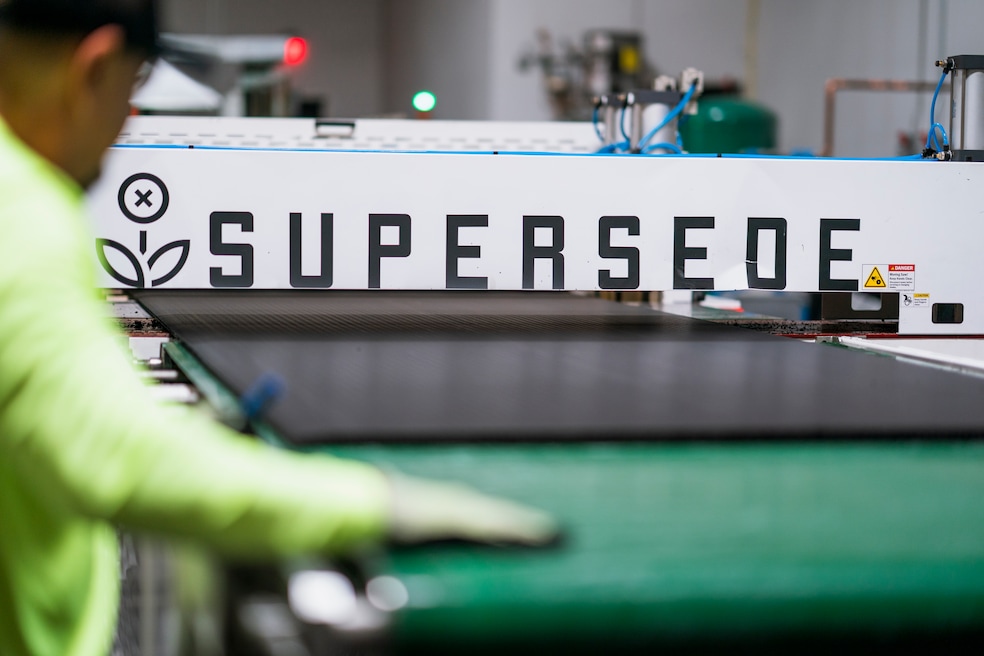Phoenix-based Supersede, a startup that specializes in manufacturing rot-proof building materials for boatbuilding and recreational vehicles from recycled materials, has completed its second round of seed funding with its sights set on entering the housing industry.
Supersede sources post-industrial recycled plastic, which is material that would otherwise be discarded in the manufacturing process. The company instead buys this material and couples it with an additive package that turns the scrap plastic into pellets and into boards. From there, these pellets are melted and extruded into waterproof and durable building boards.
The firm launched in October 2024 and has since built a strong foundation in the boating and recreational vehicle industries. Now, it wants to supply its waterproof building boards to housing manufacturers.
Supersede's founders examined the process of sheathing, which strengthens a building frame, and wanted to find a more effective and sustainable way to engineer those bases.
"We [asked ourselves], 'how can we find a way to combat deforestation and a way to find a home for recycled plastics?' Those are basically our selfish interests because what we're really doing is just building a better product," Sean Petterson, CEO and co-founder of Supersede, told Homes.com. "It is a huge opportunity for us to move a lot of plastic into a place where it will serve a purpose."
Supersede will leverage its technology of turning this scrap plastic into the modular home industry as it meets customer demand in the maritime industry. The company closed a $10 million seed round in early July to scale production and open a second manufacturing facility in the Midwest.
Innovation for sustainable, affordable homes
Supersede is in talks with modular construction companies to implement its product and technology into the manufacturing process.
"When we're talking about homes in flood zones and wet areas — ski homes — there are not a lot of truly waterproof solutions that exist. We can save a lot of steps in the build process and it's a stronger, longer-lasting material," Petterson said.
Amid a shortage of affordable homes for younger buyers, cities like Cleveland are encouraging modular housing construction. The University of California, Berkeley’s Terner Center found that factory-built homes could reduce construction time by up to 50%, though challenges to this approach include the upfront investment required in factories and building codes that may discourage housing that isn’t built on-site.
The share of first-time homebuyers in the overall buying pool dropped to an all-time low of 24% between 2023 and 2024, according to the National Association of Realtors.
Jordan Darling, fellow co-founder and COO, feels Supersede can bring some innovation to an industry that he feels has fallen behind on new solutions to sustainable building.
"[I've seen] the evolution of how a house is designed from an architectural standpoint, and some of the materials that you see on the inside have all evolved but where the fundamentals of the build have, in my opinion, fallen behind is in the sheathing space," he said.
To reach its scale, Supersede will look to open additional micro plants across the country.

